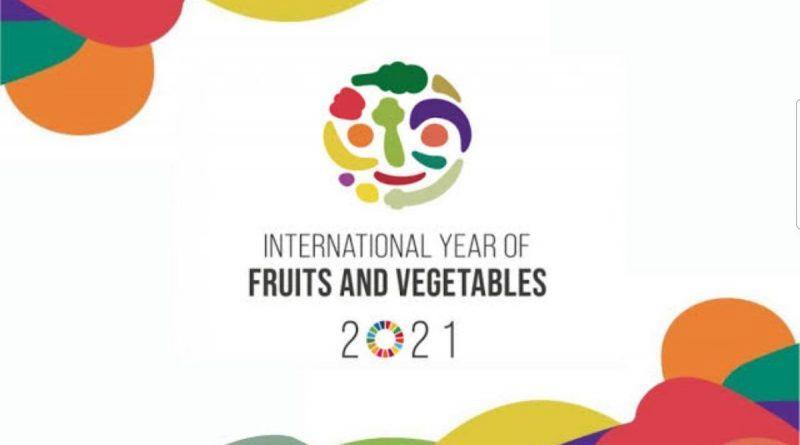UN’s International Year of Fruits and Vegetables ends with global ceremony
The UN International Year of Fruits and Vegetables 2021 drew to a close on February 24 with a global ceremony in which participants recognized the increased awareness of the critical role of fruits and vegetables to improve farmer incomes, create decent jobs, and attain food and nutrition security through transformation of agrifood systems.
“During the Year, stakeholders around the world undertook many important activities, they underlined what is needed to ensure they (fruits and vegetables) are produced, distributed and consumed in a sustainable manner,” Qu Dongyu, the Director-General of the Food and Agriculture Organization of the United Nations (FAO) said in his opening remarks, noting how the many national and regional events –which saw the participation of governments, the private sector, civil society and the scientific community – helped highlight the health, safety and nutritional benefits of eating fruits and vegetables.
The International Year of Fruits and Vegetables 2021 was proclaimed during the 74th session of the United Nations General Assembly, with FAO as the lead agency. Addressing today’s virtual closing ceremony, Qu expressed particular appreciation to the Government of Chile, represented at the event by the Vice Minister of Agriculture, Jose Ignacio Pinochet, “for being the champion of this initiative”.
The FAO Director-General noted that the Year took place amid the many challenges posed by the measures and effects of the COVID-19 pandemic: “I am proud that, despite the difficult circumstances, we have succeeded in achieving all four of the Year’s key objectives,” he said, referring to:
- raising awareness and directing political attention to the nutrition and health benefits of eating fruits and vegetables;
- promoting diversified, balanced and healthy diets;
- reducing loss and waste in fruit and vegetable food systems;
- sharing sustainable production best practices for small-scale farmers.
A world-wide initiative
Many national and regional multi-stakeholder events were held throughout the year highlighting the health and nutritional benefits of consuming fruits and vegetables; events that also underscored what is needed to ensure they are produced, distributed and consumed in a sustainable manner. This included the International Workshop on Fruits and Vegetables held in Chile, which developed policy recommendations to increase sustainable production and consumption.
The FAO Director-General highlighted the joint FAO and CIRAD (Centre de Coopération Internationale en Recherche Agronomique pour le Développement) publication “Fruit and Vegetables: Opportunities and challenges for small-scale sustainable farming” and its timely guidance to decision makers, growers and value chain actors. “Production systems can be adapted to different environments and market types by taking advantage of our vast diversity of fruits and vegetables,” the Director-General said. Emphasizing the importance of innovation, research and development, FAO strengthened its collaboration with the International Society of Horticultural Sciences and its vast global network of experts through signing a Memorandum of Understanding.
The closing ceremony was enriched by the active participation of Raquel Arbaje de Abinader, First Lady of the Dominican Republic, Stefano Patuanelli, Minister of Agriculture, Food and Forestry of Italy, Lawrence Omuhaka, Deputy Cabinet Secretary of the Ministry of Agriculture, Livestock Development, Fisheries and Cooperatives of Kenya.
An informative and invigorating panel discussion featured Patricia Araya, Alternative Representative, Permanent Mission of Chile to the United Nations Agencies based in Rome and chair of the IYFV International Steering Committee; Dilara Koçak, a social media influencer from Turkey; Sylvia M. Kuria, a young farmer leader engaged in Kenya’s organic movement; Tahmina Isayeva, Food Hero and Entrepreneur, Azerbaijan; Benny M. Corcolon, Vice President, Research and Development, Tagum Agricultural Development Company, Inc, Philippines; Ted M. DeJong, Distinguished Professor and Pomologist Emeritus, Department of Plant Sciences, University of California-Davis, USA.
The FAO Director-General emphasized how essential the fruit and vegetable sector is to achieving the Sustainable Development Goals. The FAO Strategic Framework 2022-31 seeks to support the 2030 Agenda through the transformation to more efficient, more inclusive, more resilient and more sustainable agrifood systems for better production, better nutrition, a better environment, and a better life for all, leaving no one behind.




